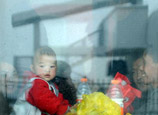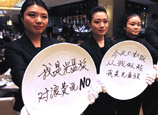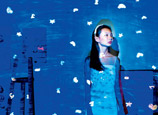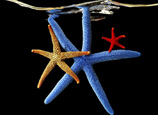
A woman's confinement for a month after childbirth is considered essential for her future health by many Chinese. And this is not simply getting a good rest and eating a hearty balance diet.
Known as zuo yuezi or sitting the month, this period of at least 30 days of strict postpartum care was first documented in the Western Han Dynasty (202 BC-24 AD). It is based on fundamental concepts of traditional Chinese medicine, which holds that a woman's constitution is at its weakest after childbirth and that she can do permanent damage to her health if she does not follow strict rules.
In childbirth a woman loses a lot of blood and warm yang energy, so it is important for women, who are essentially yin, to build her yang energy and avoid all things that are yin or cold in energy.
Traditional yuezi involves many strict rules: no cold water, no cold (temperature) food, no bathing, no brushing teeth, no hair washing, no reading, watching TV or using computers, no exposure to wind or sun. Women must always stay indoors and stay in bed.
After childbirth, a woman's liver energy is weak and the liver "controls" the eyes, so women should not read and definitely should not cry.
Women should eat a lot of yang energy foods, such as eggs and meaty soups filled with protein and fat.
Today, most women do not observe all traditions, such as ancient prohibitions against bathing and hygiene. They also read and use their computers. Some eat a more balanced diet.
Traditionalists say that if a woman doesn't strictly do yuezi that she will suffer gynecological problems, bone pains, arthritis and other problems.
"I didn't think I needed to spend yuezi like that after I gave birth to my son," says 34-year-old Zhang Qian who stayed at home. "But my mother said that even if I don't feel anything wrong now, I would suffer the consequences when I'm older, and I couldn't argue."
Zhang says her mother told her about many terrible "consequences." If you brush your teeth, your teeth will all fall out when you're older; if you feel wind or draft, you will suffer bone pain; if you take a shower or wash your hair, you will catch cold easily.
"And the result was that I spent the most painful month in my life."
Many Westerners find the month of confinement, restrictions and diet bewildering.
Western medical experts say some of the traditional rules of yuezi are reasonable, but some should be discarded since they were developed at a time when hygiene was poor and heating was a problem.
"For example, in ancient times, people didn't have hair dryers or other stuff, thus the rule against hair washing was fairly right, because women could more easily catch cold after delivery," says Dr Allen Sheen, obstetrician and gynecologist at the Shanghai East International Medical Center. "Now people don't have to adopt such rules. They can keep clean like ordinary people."
Dr Sheen said that some traditional rules, such as getting good rest, are valid. "Some Western women go to work too soon after giving birth, and their uterus has not recovered properly," he says. "Thus, they have a higher risk of gynecological problems when they are older."
















 Grandparents who leave homes to live in the cities and take care of their children's children are a growing demographic.
Grandparents who leave homes to live in the cities and take care of their children's children are a growing demographic.


![]()
